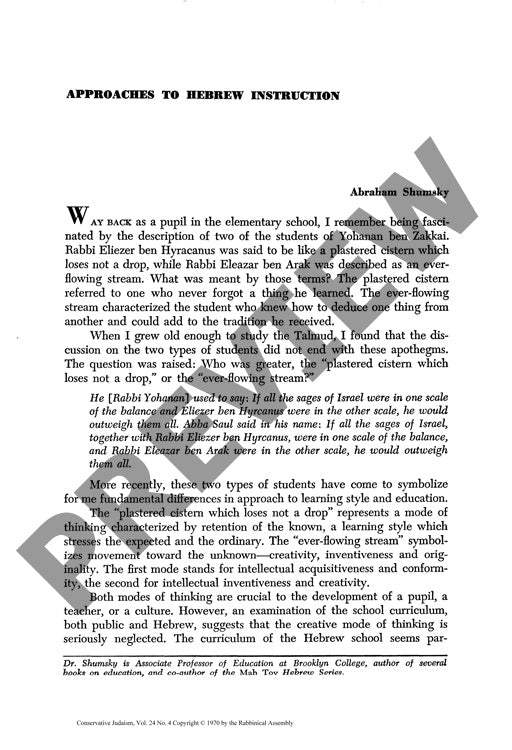Approaches to Hebrew Instruction
Couldn't load pickup availability
Ancient Talmudic wisdom contrasts two archetypal learners: the "plastered cistern which loses not a drop" versus the "ever-flowing stream" - a metaphor that illuminates fundamental tensions in modern Hebrew instruction. Four dominant pedagogical approaches in American Jewish education reveal critical limitations in contemporary Hebrew school programs, particularly in their overemphasis on rote memorization at the expense of creative thinking. Through analysis of curriculum materials and classroom practices, the research evaluates the anthology approach, which relies on traditional texts but often fails to connect with modern student experiences; the simplified language approach, which sacrifices literary quality for controlled vocabulary; the conversational functional approach, which applies modern language teaching principles while neglecting Hebrew's unique spiritual dimensions; and a proposed children's literature approach centered on high-quality Hebrew works written for contemporary American Jewish youth. The findings reveal that existing approaches inadequately address the transformed occupational structure and intellectual aspirations of American Jewish students. Hebrew education requires literature of high literary quality that bridges traditional Jewish values with contemporary experience, emphasizes interpretive rather than literal thinking, and fosters creative intellectual development essential for building Jewish character and personality in modern contexts.

More Information
-
Physical Description
-
Publication Information
Published 1970
ISBN
-
Publication Credits
Abraham Shumsky

